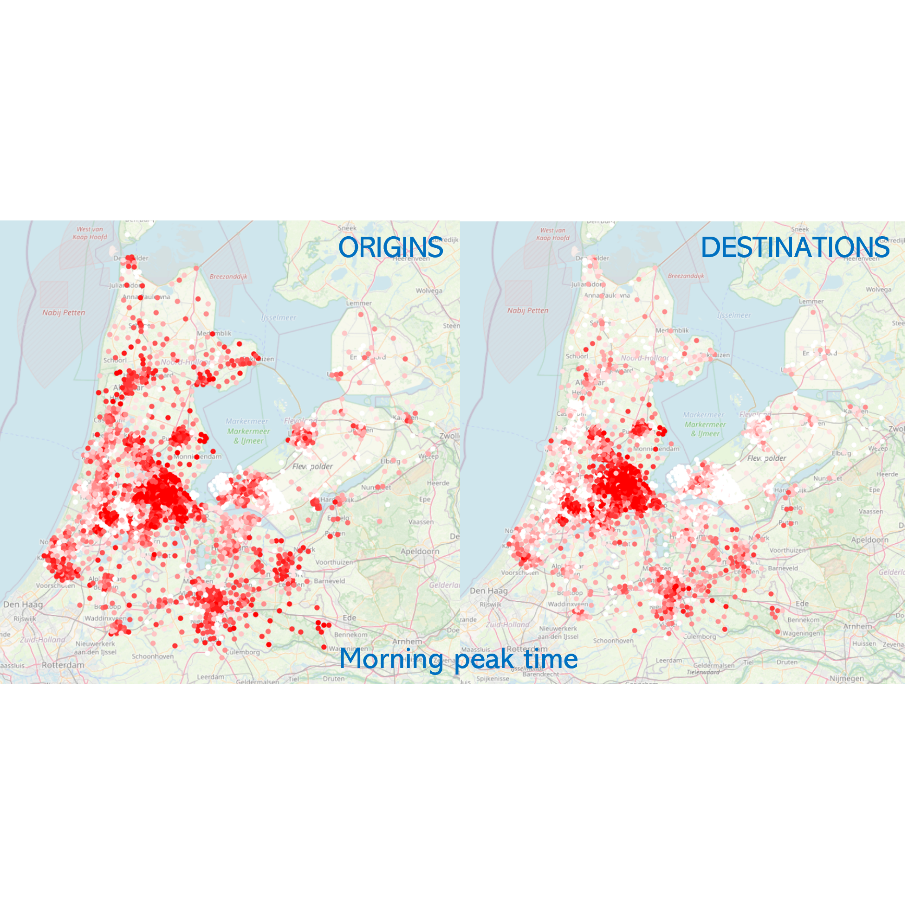Project: [Internship at TNO] Dynamic road space allocation with shared mobility hubs
Description

The XCARCITY project investigates how to facilitate and support implementation of car-free areas in Amsterdam, Almere Pampus and Metropoolregio Rotterdam Den Haag.
Car-free and car-low areas offer many benefits by freeing up road space, reducing congestion and parking requirements, and generally contributing to increased livability of the city centre. However, other solutions are needed to keep these areas accessible. One of these is offering shared mobility services, in the form of shared electric bicycles and scooters, to move people into car-low areas. While this is a popular solution, it also poses other issues, such as increased congestion to/from shared mobility hubs and the need for parking at these areas. It is suggested to address these challenges by dynamically allocating road space according to the real-time demands of the city.
This project investigates how dynamically allocating road space can be used to balance changes in the network due to the implementation of a car-free area and offering of shared mobility services. Lanes can be closed to private vehicles and limited to active modes (bikes, scooters), closed to certain directions of traffic, or even turned into parking spaces, depending on the time of day.
You will develop a prototype of a digital twin in the form of a Markov decision process model using real-world data. Furthermore, you will design an algorithm that allocates road space, considering practical constraints such as how frequently or quickly space can be re-allocated. Lastly, you will investigate the application of a shield approach, which precomputes the feasible actions for each state, also called the permissive policy, to avoid reasoning about unfeasible solutions during the policy optimization.
A typical thesis project will look as follows:
- Create simulation environment in e.g. Python using provided traffic data
- Development of a Markov Decision Process model and optimization method
- Apply model to a case study area, to be defined during the project
- Evaluation of the method, and describing it in MSc thesis
The thesis project will be carried out in the Sustainable Urban Mobility and Safety department in The Hague. Students are expected to work in the office a few days a week. Supervision will be provided by Canmanie T. Ponnambalam.
Details
- Student
-
DVDido Verstegen
- Supervisor
-
 Thiago Simão
Thiago Simão
- Secondary supervisor
-
CPCanmanie T. Ponnambalam
- External location
- TNO's Sustainable Urban Mobility and Safety department in The Hague